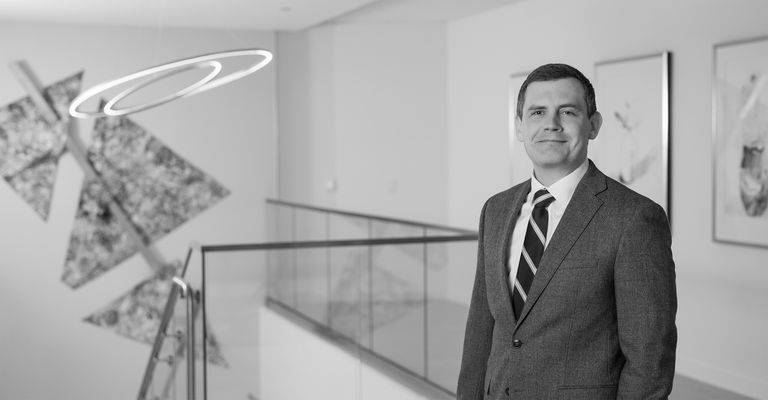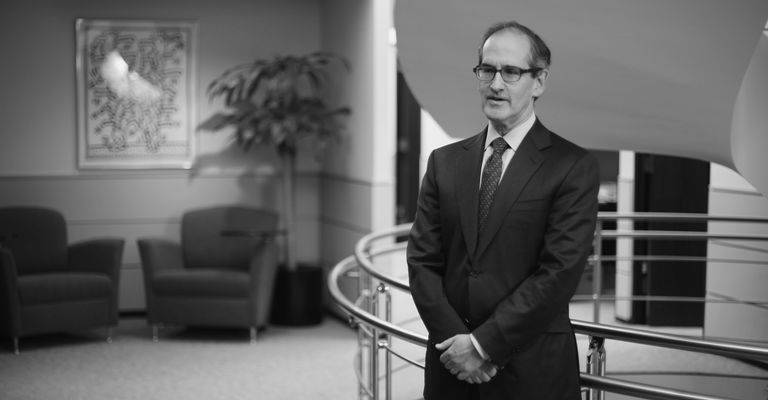BCLPSecCorpGov.com
Crime-Fraud Exception Destroys Privilege for Communications Between Former CEO of Public Company and His Outside Lawyer
Feb 11, 2025What Happened
On February 7, 2025, the Second Circuit ruled that the crime-fraud exception would prevent the former CEO of a public company from invoking attorney-client privilege to prevent an outside lawyer and his law firm from producing communications in response to a grand jury subpoena.
The CEO is the subject of a grand jury investigation concerning whether he engaged in a criminal scheme to circumvent internal accounting controls and mislead auditors to conceal multiple allegations of sexual misconduct raised against him by two former employees.
Takeaways
The crime-fraud exception defeats privilege for attorney-client communications that were made in furtherance of contemplated or ongoing criminal conduct. To invoke the exception, a party must show probable cause (1) that the communication was in furtherance of the crime and (2) to believe the communication was intended to facilitate or conceal the criminal activity.
The case is unusual, based on the allegation that a corporate CEO used outside counsel to conceal from the company, including its inside general counsel, his settlement of two lawsuits. It highlights the dangers of seeking to withhold information from law departments. Accordingly, law departments should consider establishing guidelines requiring the reporting of legal projects assigned to outside counsel so they can monitor developments. Although it is customary for management to share information about certain sensitive matters, such as preliminary M&A discussions, on a “need to know” basis, typically at least one member of the law department is included. In any case, shielding the law department from knowledge of signed agreements should trigger red flags.
Although the names of the parties in this case are “sealed,” the underlying facts echo those discussed in one of our posts last month: SEC Doesn’t Like Secret Hush Money Deals Either.
Deeper Dive
Background
According to the 2d Circuit ruling, the U.S. Attorney for the SDNY is conducting a grand jury investigation relating to the former CEO of a publicly traded company. The inquiry focuses on whether he engaged in a criminal scheme to circumvent internal accounting controls and mislead auditors to conceal multiple allegations of sexual misconduct raised against him by two former employees.
As part of the investigation, the grand jury subpoenaed an outside lawyer and his law firm for documents reflecting communications between them and the CEO regarding the allegations. The outside lawyer and the law firm where he is a partner advised both the company and the CEO on a regular basis. According to the lawyer, unlike typical outside counsel, he maintained direct contact with the CEO, not just the company's general counsel. The lawyer negotiated non-disclosure agreements with two former employees (referred to by the court as Victim 1 and Victim 2) on behalf of both the company and the CEO individually. However, the agreements were kept at the law firm and not disclosed to the company’s law department or auditors.
In 2018, Victim 1 contacted the CEO to discuss her claims that he sexually harassed and assaulted her during her employment during 2004 and 2005. In December 2018, her lawyer sent the outside lawyer a demand letter detailing the allegations and seeking $18 million to resolve her claims. Shortly afterwards, the CEO and the outside lawyer texted and called repeatedly over several days, culminating in the lawyer preparing a settlement agreement that was signed in early 2019 and provided payments of $7.5 million over five years in exchange for confidentiality and release of claims.
In January 2022, Victim 2 spoke with the CEO about a potential NDA relating to inappropriate sexual relationships during her employment from 2019-2022. Shortly afterwards, the CEO and the lawyer texted and called over several days, culminating in the lawyer preparing a settlement agreement that was signed in January 2022 and provided payments of $3 million in exchange for her resignation, confidentiality and release of claims.
In March 2022, the company’s board received an anonymous email reporting the CEO’s inappropriate relationship with Victim 2. The board formed a special committee to investigate the allegations. The CEO resigned, although denying wrongdoing. In June, the committee learned about the agreement with Victim 2 and, upon inquiry, the company’s general counsel received copies of the agreements for the first time.
In July 2022, the company announced that it would restate its financial statements for several periods to account for $14.6 million in settlement payments that the CEO had made or committed to make on behalf of the company between 2006 and 2022 – including the $10.3 million in payments to Victims 1 and 2. The company explained that those payments previously “were not appropriately recorded as expenses in the Company's Consolidated Financial Statements” -- even though “the quantitative and qualitative impact of these accounting errors” was such that the errors “were not material to its previously issued financial statements.”
In September 2023, the government served grand jury subpoenas on the outside lawyer and law firm covering, among others, all communications between and among the CEO and lawyers or other personnel of the law firm concerning Victims 1 and 2.
District court determines crime-fraud exception applies
In June 2024, the district court granted the government’s motion to compel production, finding probable cause that communications were made in furtherance of a crime or fraud, vitiating the CEO’s privilege claims. The court found that the outside lawyer and the CEO:
- Circumvented the company’s internal controls by concealing the Victims' claims and settlement agreements from the company.
- The relevant internal controls required the law department to review “all significant contracts” and to provide information about potential legal contingencies to the accounting department.
- Made false and misleading statements to the company's auditors by failing to mention the Victims' claims as contingencies in the law firm’s audit response letter, with the CEO also failing to disclose the claims or settlements in his management representation letters or fraud inquiry interviews with the auditor.
As a result, the district court held that the crime-fraud exception applied to substantially all of the documents at issue.
Second Circuit affirms district court
Disclosure order appealable. Even though disclosure orders are typically not appealable, the court found it had jurisdiction because the CEO’s attorneys were being ordered to produce documents over which he continues to assert privilege. The court stated: “we do not expect lawyers, as officers of the court, to defy a court order and be held in contempt to protect a client’s privilege, where the obligations of their profession do not demand such defiance.”
Crime-fraud exception. According to the court, a party seeking to invoke the crime-fraud exception must demonstrate that there is probable cause:
- That the client communication or attorney work product in question was itself in furtherance of the crime or fraud.
- To believe that the particular communication with counsel or attorney work product was intended in some way to facilitate or to conceal the criminal activity.
Under the exception, the attorney need not be aware that his advice was sought in furtherance of such an improper purpose. The fact that an innocent explanation may be consistent with the facts alleged would not negate probable cause.
District court finding affirmed. The Second Circuit affirmed the district court, ruling that it did not abuse its discretion in applying the crime-fraud exception to the presumptively privileged communications at issue. It relied on findings that:
- An internal control required that all significant contracts be submitted to the legal department for review.
- The agreements, which addressed allegations of serious workplace sexual misconduct by the CEO and involved millions of dollars in payments, were significant for purposes of that control.
- The CEO intentionally used the outside lawyer to circumvent the legal contracts control. Their communications about the agreements helped shield them from the law department, circumventing that control. It noted they kept both agreements in the files of the law firm. And that the outside lawyer instructed the CEO to use text messages rather than his company email to avoid the company gaining knowledge about the agreements.
Related Practice Areas
-
Securities & Corporate Governance
-
Securities Litigation & Enforcement





